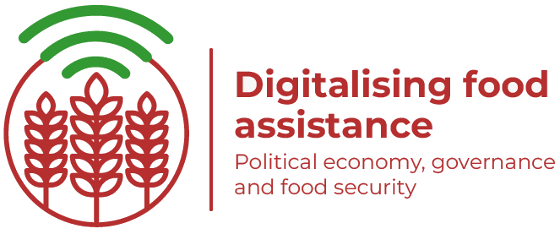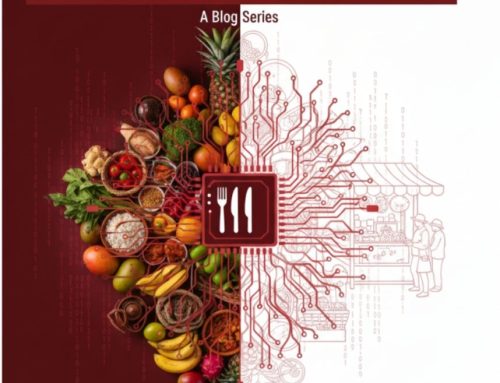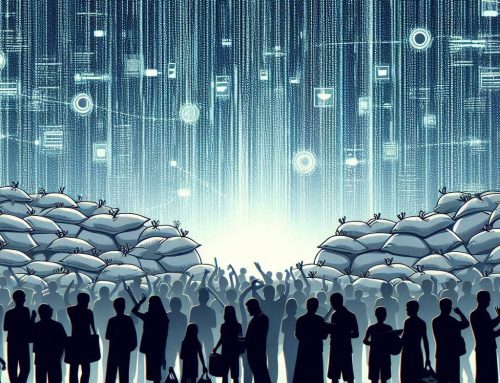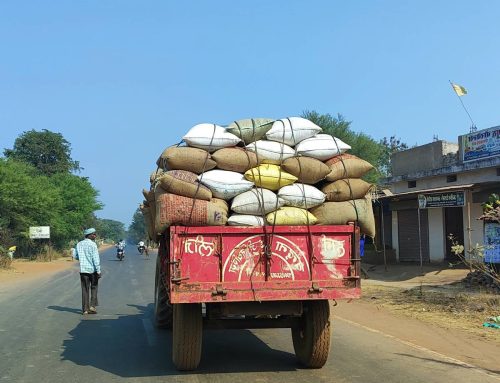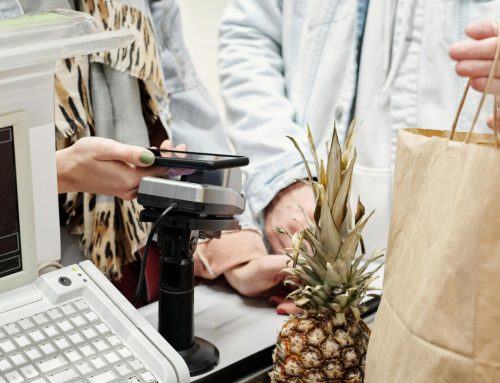El Fasher is Sudan’s Gaza as a Place of Mass Starvation
Authored by: Susanne Jaspars, Tamer Abd Elkreem
Originally published by African Arguments.
After several weeks of seeing mass starvation of people in Gaza on our television screens, finally there is trickle of news about starvation in El Fasher, once the capital of Darfur. Both areas are under siege, and starvation is used for the purpose of emptying and occupying them. Since 2023, the whole of Sudan descended into a war between the Sudan Armed Forces (SAF, the conventional armed forces of the Sudanese state) and the paramilitary RSF, which involved destruction and extreme violence against, and displacement of, civilians. El Fasher has been under siege by the RSF since May 2024, as it is the only town held by the SAF and its allies, the Joint Forces (an alliance of Darfuri groups), in a region otherwise controlled by the RSF. This blog post calls for, first, the siege to be lifted by any means. Second, a massive injection of food to prevent more people from dying. Third, as a resident of El Fasher noted, ‘El Fasher is under military siege, but not under Bankak siege’ meaning that digital transfers of money using the payment application Bankak can and need to continue. This comes at a – very high – cost, which we discuss below, but until the other two conditions are in place this is the only way to provide help and save lives.
As in Gaza, fifteen months of blocking food and aid into El Fasher – which has tightened in the past three months – is an act of starvation of those who remain there. Hundreds of thousands have already left, with the RSF advertising the advantages of doing so, but simultaneously charging high fees for transport once outside the city. On 25 July 2025, the North Darfur Emergency Rooms Council issued a statement about a catastrophic humanitarian reality experienced by thousands of displaced people inside El Fasher. The message was that food insecurity levels have reached an unprecedented level, with their field estimates indicating a near total lack of staple foods. Others report sky-rocketing food prices and people resorting to eating food usually reserved for animals such as umbaz (oil cakes). The difference with Gaza, of course, is that the siege and starvation in El Fasher have been largely invisible internationally.
The main form of aid going into besieged El Fasher has been financial transfers using the Bank of Khartoum banking app, Bankak. The financial transfers come from Sudanese living elsewhere in Sudan, diaspora groups outside of Sudan, and some NGOs and UN organisations. For example, WFP transferred cash to a large part of the population in this way in June 2025. Without state-provided internet services, Starlink satellite disks are used in centres and by individuals to connect people to the internet, which enables the sending and receiving of transfers. Financial transfers from abroad either go direct to families or to support community initiatives, such as the Takaya (community kitchens). These transfers often go direct to merchants in exchange for cash or goods, who in the absence of official banks act as mini banks. Few other individuals had bank accounts because of issues of trust and the necessary documents for opening bank accounts (national ID doc) and the nature of their work in informal sector. The continued flow of these transfers allows community groups to continue public feeding programmes, although their number has declined as people running them fled El Fasher, died, and funds have reduced. Starlink centres charge per hour for internet services, and prices have increased over the past month, but not massively compared to food. Internet access prices go up and down according to security conditions and the need for surveillance measures as both military entities and civilian groups use the same internet connection.
Food prices are increasing massively as hardly any food crosses the siege frontline, dramatically reducing stocks in the city. Up until about three months ago, traders used to offload goods in villages close to El Fasher and women used to continue the journey into the town at night, by donkey. This is no longer possible because of the RSF’s recent tightening of the siege from all sides.[1] This tightening has also reduced the brokering between RSF soldiers and traders to allow food in from other areas. Shifts in RSF soldiers circling the town further reduce the possibly of smuggling supplies. WFP convoys attempting to bring in-kind food aid have been repeatedly blocked, with the latest convoy being attacked in June in El Kuma, 85 km east of El Fasher. In addition, the RSF has systematically attacked and destroyed markets, cut off water supplies and targeted the health care system, almost entirely destroying it. The SAF have also bombarded a number of markets. As mentioned above, some food continues to be smuggled into the town, but it is dangerous for those venturing outside the siege frontline, and because of the high demand, speculation and hoarding are common. As a consequence, in early August, the price of sorghum was 25 times higher than in the surrounding areas. Over a period of just 10 days, the price increased by 100%. When money transfers are made via Bankak, the cost is increased further with more than half the funds deducted as fee for the transaction alone. The fee is retained by those operating digital banking accounts and who are also brokering access to goods as well as cash. According to a community kitchen organiser: ‘I bought oil for 460 thousand pounds with Bankak, I then sold it to obtain 230 thousand pounds in cash because I need this to buy firewood, water, and other items’. Merchants accumulate their cash balances and sell goods at a high price.
International Humanitarian law (IHL) and International Criminal Law (ICL),specify starvation as a crime: ‘It is prohibited to attack, destroy, remove or render useless objects indispensable to the survival of the civilian population … for the specific purpose of denying them for their sustenance … whether in order to starve out civilians, to cause them to move away, or for any other motive’. The crime of starvation includes wilfully obstructing humanitarian aid. The term ‘objects indispensable to survival’ includes food, but also water, medicine, clothing, shelter, fuel, and electricity. As in Gaza, we are witnessing the crime of starvation, which requires a separate response to prosecute and deter those responsible.
Given the siege, the only way to provide assistance right now is by sending money transfers, in the hope that food can continue to be smuggled into El Fasher and that relatives will have at least one meal – at whatever cost. However, this is far from ideal. As indicated above, the transaction costs (physical, safety, financial) are very high. In addition, our interviews with Sudanese in the UK reveal their despair at the burden of providing the bulk of aid in Sudan’s humanitarian crisis. They spend savings, take on additional work, sell assets and organise fundraising activities, as well as severely limiting spending on themselves. For recently arrived refugees, the need to help relatives from their meagre and precarious income (if any) is directly impacting their own well-being.
What is needed, therefore, is an increase in humanitarian aid funding through local and international organisations. Equally important are concerted diplomatic efforts to break the siege, and to bring massive quantities of food into El Fasher. At the same time, it will be important to monitor how the current way of providing aid to people in a town under siege feeds into inequalities and exacerbates the war economy to determine how to mitigate this, once immediate life-saving measures have been taken.
Endnote
[1] Humanitarian Update – 13 July 2025. ABANDONMENT OF EL FASHER: THE FINAL THRESHOLD? Understanding markets project.
*This piece was co-authored with local researchers on the ground whose names are withheld for security reasons. It was first submitted on 8 August 2025.
Image caption/credit: Children await a meal from a volunteer-run Takaya (public kitchen) in El Fasher. (Photo: Al-Muzzamili)
